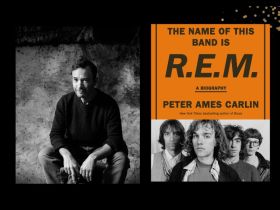So, you have a literature project – a play, a novel, a book of poems, a story collection or spoken word tour. And rather than sink all your own money into it (again) you have decided to try the Hunger Games that is applying for arts funding in Australia. The figures are depressing: of the hundreds of hopefuls who put themselves through each gruelling application process, only a very few succeed. And literature projects get the very slenderest sliver of that shrinking pie.
While there’s life, there’s hope, though. You have to… erm… have a go… to get a go… or something. There is, however, a LOT of work in between ‘I think this would be a cool thing to do’ and ‘Here is a project proposal and a budget that ticks all your boxes, please give me money’.
Here are some tips and tricks to help you bridge that gap. May the odds be ever in your favour.
Whose coffers?
You have options. Yes, there is always the Australia Council. But every State and Territory has their own arts funding program as well, as do many of the larger Local Councils. Think about whether your project has a local or national focus, and be strategic about where you apply.
You can also split your project up: perhaps you could ask the Australia Council to pay you for your professional time while you research and write the wordage, but you could ask your State, Territory or Council arts folks to fund your local publicity, or sound and lighting for the local launch party, or local dramaturgs and actors to workshop your play. This is a gamble but it can pay off – funding bodies LOVE projects with ‘a diversity of funding sources’.
Tell the story
If you’re reading this article you’re probably a storyteller of some kind. Your arts grant application is a story, too, and requires the same kind of care. This means multiple drafts, and preferably beta readers. It also means your project plan, budget, project outline, CV, letters of support and writing sample can’t contradict each other – they all have to work together to form a harmonious narrative. Work backwards from the application date and block out time in the final ten days for editing, incorporating feedback and getting all the elements of the application properly aligned.
Make it as compelling as you can
Depending on the jurisdiction, the panel assessing your application might be made up of arts practitioners from a range of disciplines. They will probably have at least one literature person, but they may not be from your genre. Even if you’re ‘poetry-famous’, or ‘playwright-famous’, you have a bit of work to do.
Your application has to answer the question ‘Why me? And why right now?’ for someone who has never heard of you.
Explain your project, and your career to date, as if trying to (subtly) impress an intelligent, curious, complete stranger at a party. Your application has to answer the question ‘Why me? And why right now?’ for someone who has never heard of you.
Break it down
What steps are required to execute the whole thing from go to whoa? Which ones are you asking for money for? (Research? Writing? Editing? Touring?) How long will each one take? Who will need to do what? By when? Most application forms require a detailed project plan. You don’t have to submit a colour-coded Gantt chart, but you do have to show you have thought about how the work will be allocated across the available hours and people. Also be careful: some jurisdictions have specific dates for either starting or stopping work they fund. Your calendar is your friend.
Learn to love those numbers
There is a good reason most writers freeze up when they get to the budget section of an application form: they see intimidating jargon that doesn’t really seem applicable to most literature projects. ‘Where do I tick the box that says “support me while I live in Gran’s basement for a year and smash out this manuscript?”’. It doesn’t exist. Think very carefully about everything required for that to happen, though. Rent, heat and light for the basement, paper and ink for the printer, your own time writing and editing. If you’re living rent free and Gran’s covering utilities as well, that’s an ‘in-kind contribution’ from Gran (at least for ‘office hours’) and it belongs in that column.
Read: Awards and Opportunities: Vogel announced, Minderoo grants, and more
Will you make money during the year from readings and appearances using the material from this project ? Guesstimate how much and put that in the income column. This, too, helps with those ‘diversity of funding sources’. On a related point, never ask one funding body to cover the entire project cost, even if you ask them for most of it. Properly accounting for in-kind contributions and income can help with this.
And finally – how much to charge for your own ‘desk time’? Some jurisdictions have guidelines for this, most don’t. You could use foregone income, or an hourly rate, or take the ASA day rates and modify them to suit your context. Just be thorough, logical and consistent.
Your writing sample is your golden ticket
Many grants assessors read the writing sample first. Submit your BEST work, preferably from the project you are asking for money for, or a recent piece which is similar. Keep it under the page limit. If it is from a work-in-progress, give it a thorough edit before you hit ‘upload’. And if you are changing things up and writing outside your usual genre, by all means include a (short) sample of your award-winning existing writing, but pair it with a piece in the new genre. Either that, or tweak your project outline and budget to include mentoring or other support from an experienced writer in the new genre.
Call in those favours
Sourcing letters of support is hard, but necessary in many jurisdictions. These letters are supposed to show you:
(a) are recognised as a writer by other writers, and
(b) have done some preliminary legwork on your project to get it the support it needs.
It can be excruciating asking other writers for these, but it helps if you give them some dot points to start them off (and offer to return the favour when you’re famous). Got an agent who loves your idea? Put a letter in from them. Got a publisher interested in this work? Get them to put it in writing.
But also think more broadly. Perhaps you are an emerging spoken-word artist, and the convenor of a gig you regularly perform at has said they like your work. Hit them up for a one pager about how full of potential you are, and how amazing your project is. If you’ve been in a particular journal multiple times, the editor might be prepared to endorse you if you ask nicely. Or perhaps you did a course during lockdown? The convenor might be able to sort you out.
Timeliness is next to fundedness
In many jurisdictions the panel will have to assess your project’s timeliness. Could it take place just as easily next year? It is unlikely to score highly on this criterion (check the criteria for the jurisdiction you are applying to before you panic). If there are time-critical aspects to your project – perhaps the availability of mentors or collaborators, or the dates for a particular festival, make sure you emphasise these in your application. Even your Great Australian Novel can be timely if it engages with aspects of the zeitgeist, or depends on interviews with aged informants, or if you can argue it comes at a critical stage in your writing career.
Pick Up That Phone
I beg you, if you do nothing else on this list, do this. It will change your life. As early as possible in the process, call the number for applicant enquiries. Speak to a person. They are generally lovely. They want to help. Tell them about your project, ask for their advice on how to frame it. They can’t comment on application drafts, but they can steer you right on a myriad general matters.
There is a lot more to talk about, but that should do you for now. The main thing is to start as early as possible, and set aside twice as much time as you think it will take. Good luck. I hope we have tweaked the odds ever so slightly in your favour.
Melinda Smith is teaching the online course Get That Grant: Applying for Literature Arts Grants on Sat 12 June.





